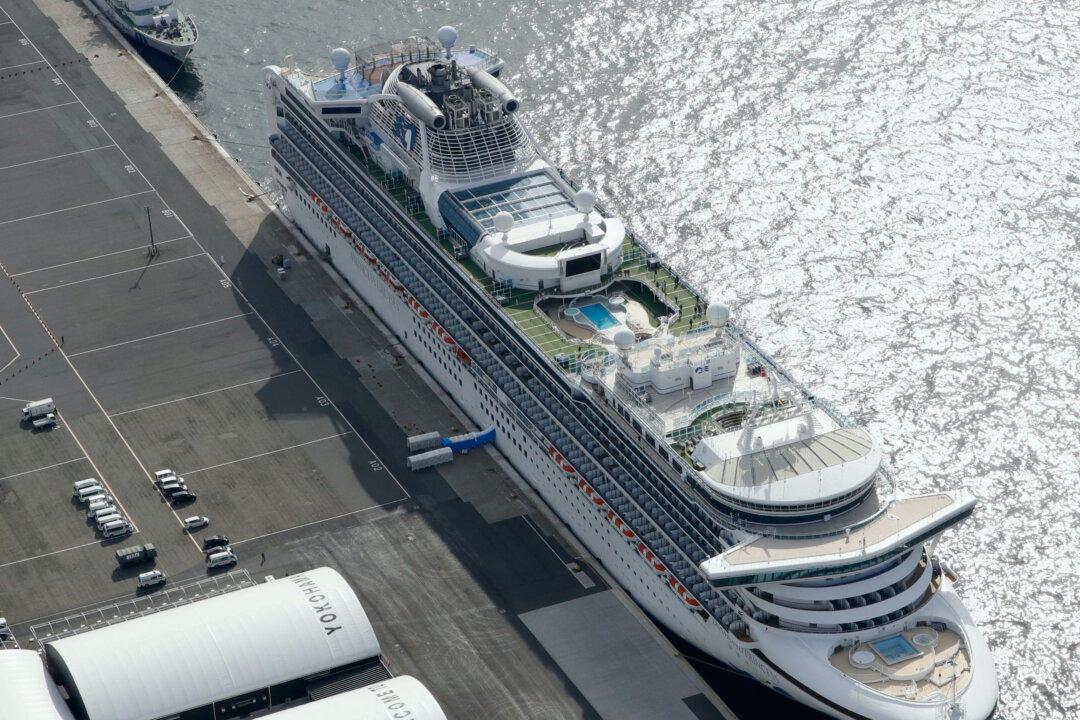Japanese officials said Friday that 61 people tested positive for the coronavirus on a quarantined cruise ship near Yokohama, which came after 20 cases were confirmed on Thursday.
Officials said they have screened 273 passengers who they said may have been exposed to the mysterious new virus on the Diamond Princess. The 41 new patients were transported off the cruise ship for medical treatment, Princess Cruises said.





